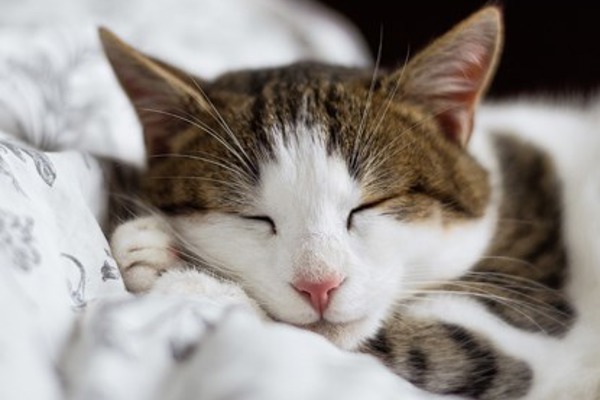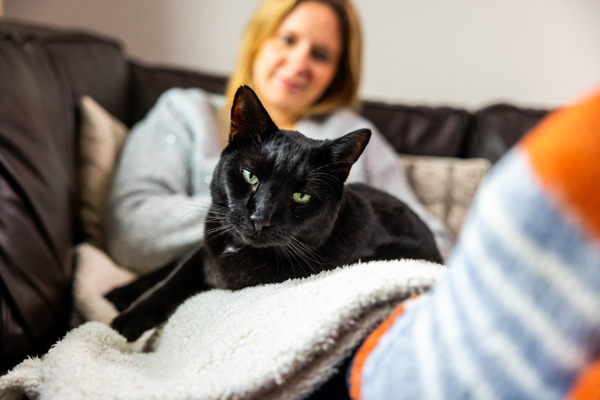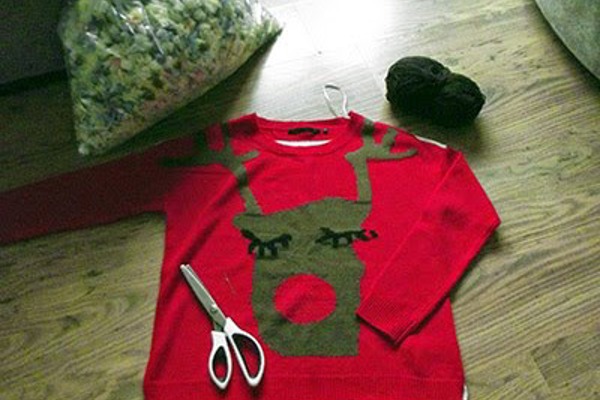Cats sleep for around 16 hours a day. It’s important they have the ideal place for snoozing
There are lots of different options when choosing a bed for your cat. From elaborate cat towers to the simple cardboard box. With so much choice, it can be hard to know which one your cat will actually sleep in. And which one they will ignore, no matter how much it cost. To increase your chances of success when searching for the perfect cat nap spot, here are the crucial things to consider.
The best cat bed is...
1. Comfortable
Of course, the most important aspect of any bed is that it needs to be comfortable. Something soft and cushioned is ideal, such as a donut bed. Or you can add a fleece blanket to the Hide & Sleep® to create a comfy snoozing surface. If your cat isn’t using the comfy new bed you’ve bought for them, it could be because it smells new and unfamiliar. Try placing something with your cat’s scent on inside, for example a blanket they’ve already slept on or a toy they play with. This will make it more enticing to them.
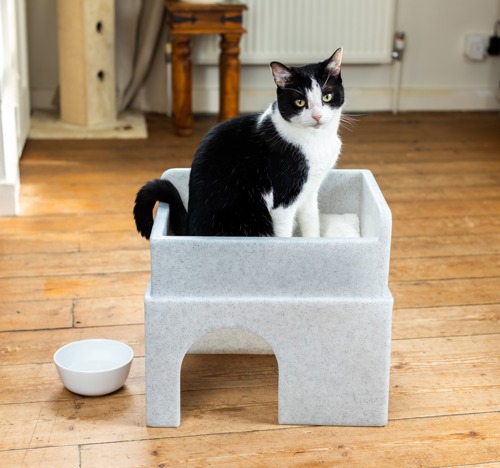 The Cats Protection Hide & Sleep® is an ideal cat bed and lookout spot
The Cats Protection Hide & Sleep® is an ideal cat bed and lookout spot
2. Warm
Most cats can’t resist a warm spot. That’s why they can often be found stretched out in a patch of sunlight, or close to a radiator. Try placing their bed in a warm part of the house, or adding a pet-safe heat pad to their bed. The Hide & Sleep® features a handy hole for threading a heat pad cable through! You could also get a radiator hammock bed, so your moggy can benefit when the heating goes on.
3. Private
Cats feel vulnerable when they’re sleeping. They like their bed to be in a quiet, private spot where they won’t be watched or disturbed. An igloo bed offers lots of privacy as it’s enclosed, as does the lower area of the Hide & Sleep®. Being able to hide away is proven for helping cats feel less stressed. The more hiding places they have, the better.
4. A good lookout spot
When they’re not fast asleep, cats like to rest somewhere where they have a clear view of their surroundings. This allows them to look out for any potential dangers. It also helps them spot any opportunities for a tasty meal or chance to play. The top section of the Hide & Sleep® makes a great viewing area. Or you could try placing their bed somewhere off the ground, such as on a shelf or top of the wardrobe, Make sure it's safe and easy for them to get to.
5. Accessible
Cats like to have a clear entry and exit point to their bed, in case they feel threatened and need to run away. The Hide & Sleep® has two sperate holes. If one is blocked, your cat knows they can make a clear getaway out of the other.
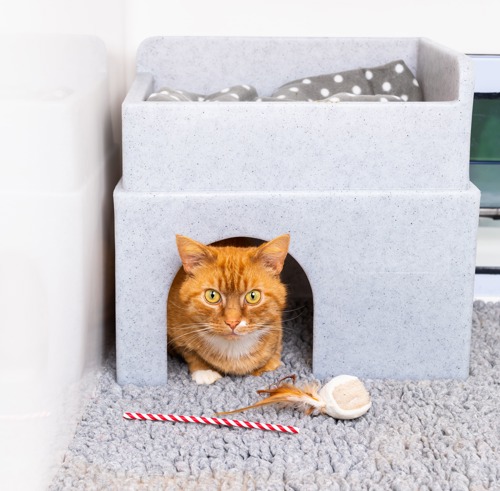 The Cats Protection Hide & Sleep® offers a safe space to hide underneath
The Cats Protection Hide & Sleep® offers a safe space to hide underneath
6. Easy to clean
Cats regularly change their sleeping places. This helps prevent the risk of parasites such as fleas building up in their bed. It’s best to provide them with a few beds around the home, and when they’re not using one of them, give it a good clean. The Hide & Sleep® is made from polyethylene which is easy to clean with most cleaning products. Make sure any blankets you buy for your cat are washable.
Why won’t my cat sleep in their bed?
If your cat isn’t using the comfy new bed you’ve bought for them, consider some of the points above. Try adapting it to meet some more of these criteria. Your cat could also be avoiding their new bed because it smells new and unfamiliar. This can be a bit scary to them. Try placing something with your cat’s scent on inside the bed to make it more enticing to them. For example, a blanket they’ve already slept on, or a toy they play with. Find out more about cats and sleeping.
Find lots of great beds, toys and more for your cat on the Cats Protection shop.

